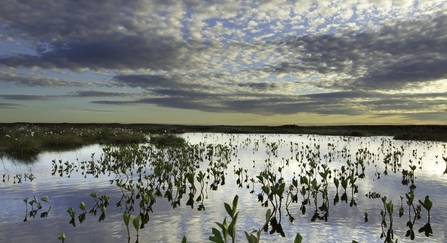Some of the nation’s largest conservation charities have written to Boris Johnson urging him to make a series of New Year’s resolutions to help tackle the nature and climate crises.
The National Trust, RSPB, Woodland Trust and The Wildlife Trusts [1] have joined forces to call for urgent action and build on the promises made at COP26 in Glasgow.
The charities are asking the UK Government to make seven commitments for 2022, focused on protecting and restoring peatlands, paying farmers to restore nature and additional measures to protect our marine environments.
They are also calling for an immediate ban on the use of peat for horticultural purposes in the professional and amateur sectors as well as a ban on burning upland peat.
It is hoped the pledges will also bring a greater focus on adaptation, as well as local and national government thinking more about how to tackle the changes and risks that climate change is bringing.
These commitments will ensure that Government can reach net zero and halt the catastrophic decline in nature by protecting and providing new homes for wildlife.

